513. Visions and Revisions
Time for you and time for me,
And time yet for a hundred indecisions
And for a hundred visions and revisions
Before the taking of a toast and tea.
-- lines from The Love Song of J. Alfred Prufrock, by T. Stearns Eliot, 1915
*****
Late yesterday afternoon and well into the evening, my friend Preston and I took to the backroads leading out of northeastern Jefferson County. Our first stop was the allegedly self-contained microcity of Norton Commons, a very interesting but much-too-perfect-and-refined development off KY1694 where the old WAVE3 Farm was when I was a kid. KY1694 is called Brownsboro Road, but it is not the Brownsboro Road most of us identify with Ballard High School and Holiday Manor while wondering which of KY22 and US42 is the actual Brownsboro Road, once one leaves the confining bounds of the Watterson Expressway. For the record, Brownsboro Road is called US42 inside the Watterson and KY22 outside the Watterson until one reaches KY1694, and the turnoff to Norton Commons. At that point, if one stays east on KY22, the roadname is Ballardsville Road.
Preston and I covered a number of subjects during our leisurely ride which took us to three different county seats, La Grange (of Oldham), New Castle (of Henry), and Bedford (of Trimble). The discussions included a reference by Preston to T. S. Eliot's 1922 poem The Waste Land, which I admitted to not having read. In return I quoted, rather, from his earlier poem The Love Song of J. Alfred Prufrock, which Preston then admitted he had not read. An even score.
As with all of our journeys, whether across town or across a handful of counties, politics was a subject oft discussed. Last night's discussion centered on the newly created race for mayor, newly created given that the current and longtime possessor of that office had earlier in the day announced he would not seek reelection, something a handful of people, including this writer, had been predicting for over a year.
What has happened since his announcement has been a summing up of the years, decades, even a generation of service granted by the mayor to the citizens of the old City of Louisville and the later Louisville-Jefferson County Metro governments. As if he had crossed over to another place, the Courier-Journal has ran dozens of pictures, several stories, and sidebars, print- and electronic media- space usually reserved for at-the-ready press when one does indeed cross over from this world to the next.
Similarly, the mayor's fellow politicians have been giving versions of accolades for all the things he has done (and a few things other people did). My good friend John Yarmuth, Kentucky's Third District Congressman, was in on the tidings. Another blogger thought all these good words of good deeds were too much, calling them "revisionist history." It isn't my intention in this entry to nod approvingly or join the naysayers in passing judgment. But an idea has crossed my mind.
I do not often like to play in the make-believe world of "what might have been." I've made decisions in my life which, if given the opportunity of revision, would most certainly have been revised, and perhaps revised yet again. But we do not get such opportunities, at least to my knowledge. But I would like to indulge the fantasy for a moment and engage in a game of what might have been.
This story begins with a failure of which I was a part. In 1998, I joined with Ken Herndon in supporting and helping to run then-3rd Ward Alderman Tom Owen's race for Mayor of Louisville. This was the old Louisville, not the current one. Tom's race was chaired and managed by Shannon Hensley. Our headquarters was on Bardstown Road in the Highlands, naturally. Many in our community thought the race quixotic. Many thought then and still do, most with a great sense of admiration, of now-Councilman Owen as something of our own Don Quixote, but considerably more effective as there are no windmills in the 8th Council District. I should add here that Tom is a friend of mine and I know him to be much more rooted in the real give-and-take of city life than his reputation allows. His City Hall office is directly across the hall from mine, and if he takes issue with anything I write here, I will hear about it very soon. But I digress.
As I said, the effort was a failure. But not one of grand proprotion. Tom's opponent in that race, in the Democratic Primary, which was all that mattered in the old City of Louisville, was David L. Armstrong, a former Jefferson County Prosecutor and County Judge, and Kentucky Attorney General. We were supposed to lose in a big way; we didn't. We lost by a small number, but it was a loss nonetheless. I, of course, thought we were going to win - I almost always think that of the candidates I'm for. And while we had forecasted in our campaign literature that a Mayor David Armstrong would be an East End elitist with no real concern for downtown or the Arts or housing or entertainment, nothing could have been further from the truth. As mayor from 1998-2002, Armstrong was the absolute strongest of advocates for all the concerns we had thought he wouldn't be. I was very pleasantly surprised and impressed by his term of office and his attitude to a broad scope of Louisville's citizens. I remember attending a "thank-you" concert for him at the Brown Theatre toward the end of his term, recognising all the good and great things he did for our beloved former City of Louisville. But, one thing he did wrong was support the move to merge the old City with Jefferson County.
And that's where tonight's entry on revisionist history comes in. What if?
What if Tom had won the 1998 Democratic Primary for mayor and then became mayor after the November election? I've never had this discussion with him although I have often thought about it. I do not know if he would have supported a proposed merger of the old City with the County had he been mayor at the time. My belief is he would not have - but that is strictly my belief. My belief is his would have been an administration affixed to the old City, addressing the concerns and needs that Mayor Armstrong did do, and not flirting with the wants, needs, dollars, and voters to be found in the county. Maybe I would be wrong, I do not know. This is all speculation. What if, though?
Let's assume for a moment that the Chief Executive of the old City had chose in 2000 to protect the interests of the old City by way of opposing merger with his bully pulpit. Would such a stance had been enough to defeat it? Merger had certainly been defeated in the past, at least twice in my voting lifetime, although I voted one way the first time then, like John Kerry, switched on the second. What if?
There are presently calls on blogs here and there to in someway undo the merger, to unmerge. Ironically, many of those calls are coming in from southwest Jefferson County which has undoubtedly benefitted from merger by way of having representation by people who actually live in the area. They are getting additional urban services without paying any additional Urban Services taxes. Before merger, southwest Jefferson was represented on the old Fiscal Court by someone who lived by Chickasaw Park in southwestern Louisville. That isn't to say that person's representation was bad - it wasn't - but it also wasn't closeby.
Undoing the merger vote would take legislative action in Frankfort [legislative action is an oxymoron lately] as well as a vote here in Louisville - I think. I'm not really sure and haven't closely studied Chapter 67C of the Kentucky Revised Statutes, the Bible for Louisville-Jefferson County Metro. The law that was written and passed allowing us to merge was well-written enough to make the undoing rather undoable. But again, What if?
Had merger failed, where would we be today? Specifically, about whom would Preston and I had been talking last night when speaking of the next mayor's race. It is true that all of the announced candidates are (to my knowledge) residents of the old City of Louisville. So they could all be running in that race as well as the current one. Let me note here that, conversely, there is no one currently running who could be identified as a "county" person, someone such as Irv Maze or David Stengel or Denise Harper Angel, all three of whom have roots in Okolona, a Democratic, if conservative, bastion of Democratic primary votes.
I guess my question is this - where would we be if not for Merger? I'm curious if any of my six faithful readers would care to address that question. The comments section is open for your ideas.
*****
For of all sad words of tongue or pen, The saddest are these: "It might have been!
-- John Greenleaf Whittier

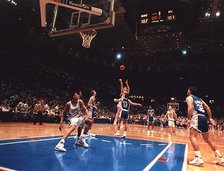
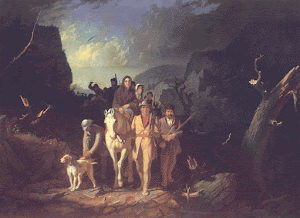












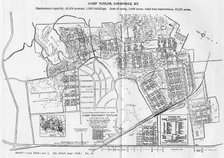
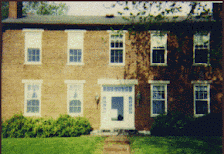

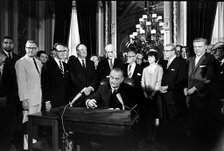

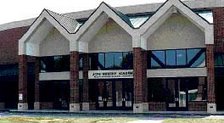


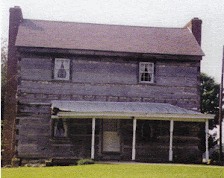
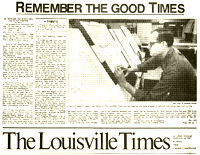
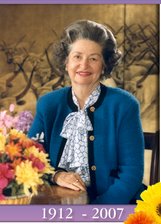
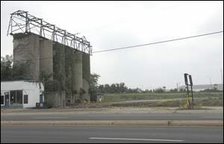
1 comment:
Jeff, you and I don't disagree on much -- but this is one topic where I believe we disagree. I voted for merger, and was glad to do it. I'd do it again.
I think merger helped the city change its image of itself. When we arrived in 1992, this town felt to me as if it was in suspended animation. As I've shared with you, that seemed to change sometime in the late 90s. And I believe merger accelerated that change.
Louisville is much more of a "can-do" city than it was fifteen years ago. It thinks of itself differently, and it IS different, in many small and large ways. I'm not sure it would be that much different if merger hadn't happened.
Do I think it's all been positive? No. I don't like the dual-taxation system, and I don't like how microscopic in focus it has made some of the council-folk. Overall, though, I think it has been a good thing for the city.
Post a Comment